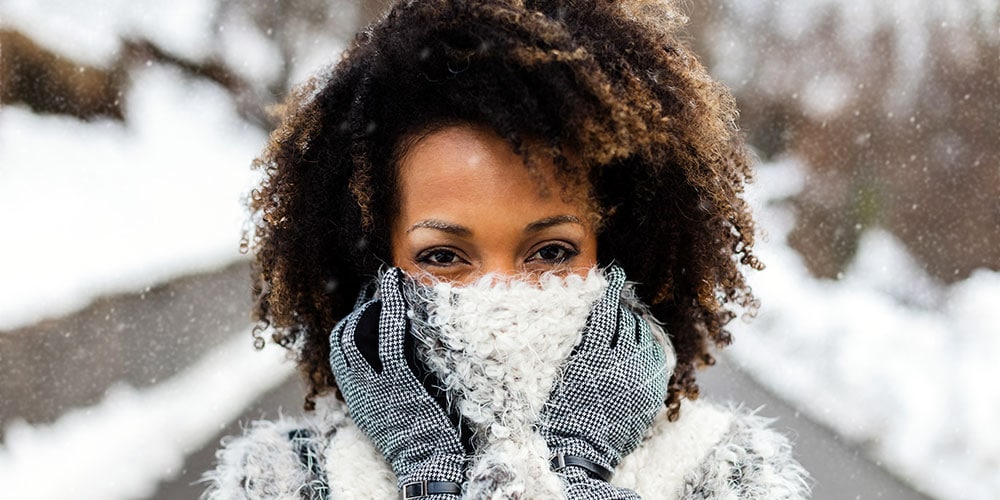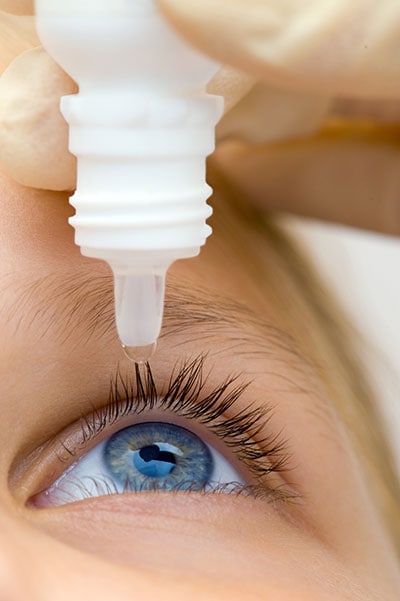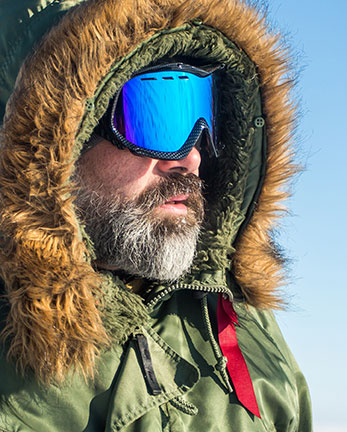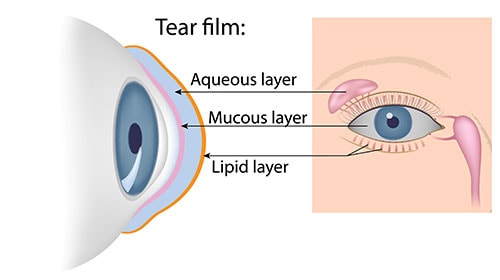
As the temperatures begin to drop and the cold winds blow, you may start to notice more people getting sick. You can’t help but wonder if this is due to folks gathering indoors and being in closer proximity, or if it’s simply a matter of being exposed to cold air while engaging in outdoor activities during winter weather.
Let’s start with the basics
Firstly, we’re debunking the old wives’ tale that exposure to cold temperatures can make you sick. Not true. Truth is, more people get sick during winter due to a number of factors. Exposure to dry air (indoors and out), poor ventilation in homes with indoor heating, and large indoor gatherings all contribute to increased colds during wintertime.
Good hygiene practices advised by medical experts – like washing your hands often and avoiding touching your face – can go a long way toward avoiding winter colds. It’s important to wash your hands often and to avoid rubbing your eyes or touching your face in public since this can introduce illness-carrying germs to your system.
The flu virus can survive up to two hours on surfaces you touch every day, like doorknobs and countertops! So in addition to washing your hands, make sure to keep hard surfaces clean as well (especially if someone in your house already has the sniffles).
While being careful with your eye hygiene is vital to avoiding illness during the colder months, it’s also important for managing easily avoidable symptoms of winter dry eye syndrome.
What are the common symptoms of dry eyes?
- Stinging and burning
- Feeling of grit or a foreign body in your eyes
- Mucus in and around your eyes
- Redness
- Eye irritation
- Excess tearing / watery eyes
- Not enough tears
- Blurry vision
- Itchy eyes
What causes winter dry eye symptoms?
The causes of winter eye discomfort can be divided into outdoor and indoor factors.
Outdoor factors contributing to symptoms of dry eye in winter:
Decreasing outdoor temperatures not only cause air to become colder but also drier. When the air is dry, it contains less moisture and this accelerates the evaporation of tears from the surface of your eye, which can lead to vision problems.
Our tears are a mix of water, oils, and mucus that form a protective layer on the surface of our eyes. Tears are continuously being produced by our tear glands (lacrimal glands) to keep up with the natural rate of tear evaporation from the surface of our eyes.
Since cold air holds less water than warm air, our tear evaporation accelerates, and we can experience dry eye symptoms. Exposure to icy wind can also increase tear evaporation.
Another outdoor irritant is glare from the reflection of ultraviolet (UV) light on snow, which doubles your exposure to UV rays. We don’t have to tell you that UV exposure is bad for your eyes! Even several hours of exposure to UV radiation can cause corneal inflammation (known as photokeratitis) that makes eyes red, sore, and light-sensitive. What’s more, prolonged UV exposure plays a key role in the formation of cataracts and other vision-threatening eye conditions.
Indoor factors contributing to winter dry eye symptoms:
When we heat our homes and workplaces during the winter, cold air from the outside is warmed up and circulated indoors. Warm dry air can be even more dehydrating to our eyes than cool dry air, creating problems for our eyes and skin. What’s worse, recirculated indoor air contains other dehydrating components, like skin flora and bacteria, in much higher levels than fresh outdoor air.
Winter season treatment options to protect your eyes:

The good news is that with a few, easy-to-follow changes to your routine, you can keep your eyes comfortable and well-protected during the winter months.
Keep your eyes moist
It’s critical to offset the low humidity levels you’re likely to experience inside heated homes and workplaces during the winter months. Install a humidifier to provide more moisture in the air and thus slow down tear evaporation during your waking hours.
- Drink extra fluids.
- Carry over-the-counter eye drops such as saline, artificial tears, or ocular lubricant drops that help supplement your natural tear layer and slow down evaporation.
- If drops aren’t doing the job, consider applying dry eye gel inside your eyelids at bedtime to restore moisture overnight.
- Also, warm compresses (or just a washcloth immersed in warm water) can help as well.
Blink more often
When you’re focusing on a task or staring at a computer screen, you blink less; this can exacerbate eye dryness which can lead to eye problems. When you blink, tears are replenished and spread over your eye’s surface, providing lubrication. If you can train yourself to blink more frequently, your eyes will be happier.
Avoid being near direct heat sources
While warming up by a fireplace might seem comforting, don’t spend too much time in front of the fire! The heat will cause your tear film to evaporate quickly and make your eyes dry out. Also try to avoid drafts and fans, and direct heating vents away from your face.

Protect your eyes from UV light
Whether you’re spending several hours skiing, snowshoeing, or shoveling snow, exposure to the sun’s ultraviolet rays reflecting off of snow or ice can damage your eye’s surface and cause inflammation of your cornea (the clear “windshield” part of your eye) and, even worse, snow blindness. Wear sunglasses with at least 400 UV protection to block both UVA and UVB rays.
And wrap-around style protective eyewear can shield your eyes from the drying effects of the wind, especially when engaging in winter sports activities where air moves quickly across your eyes like skiing, snowboarding, sledding, and snowmobiling. Make it a point to keep an extra pair of sunglasses in the car so that you’re not caught without glasses if you experience glare while driving.
Take a break from digital devices
With staying indoors and working from home being our new reality during the Covid-19 pandemic this winter, it’s important to avoid excess screen time that can lead to dry eye symptoms.
Give your contact lenses a rest
If you’re a contact wearer, you might have noticed that you don’t tolerate them as well during winter months. That’s because contact lenses can wick tears from your eyes. If you are planning on doing prolonged outdoor activities or will be in a super-heated environment, consider giving your contacts a break that day and wearing glasses. Your eyes will thank you for it.
Nourish your eyes
“You are what you eat” holds true for your eye health too.
- Eating plenty of leafy greens helps prevent macular degeneration by protecting your retinas.
- Bright orange veggies like sweet potatoes, carrots, and pumpkin have Vitamin A that helps with night vision.
- Omega 3 fatty acids found in oily fish like salmon, tuna and sardines, can help reduce inflammation leading to dry eyes.
- Crucifers like broccoli contain lutein, zeaxanthin, and Vitamin C that can stave off age-related macular degeneration.
- Vitamin E found in wheat germ, almonds, sunflower seeds and hazelnuts can help slow the eye’s aging process and deter cataracts and vision loss.
Check with your eye doctor
If you’re struggling with dry eyes go see your doctor for an eye exam because not all dry eye can be chalked up to cold weather. In fact, dry eyes can be a symptom of a number of serious health conditions such as Sjogren’s syndrome, diabetes, lupus, rheumatoid arthritis, and thyroid disease, just to name a few.
Tell your doctor about any health problems and medications you’re taking. If your doctor determines that environmental factors are the culprit, these tips can help you take care of your eyes during winter days.
Why choose Assil Gaur Eye Institute for your eye care?
The eye care professional team of ophthalmologists and optometrists at AGEI offer world-class eye care and vision correction, specializing in LASIK vision correction and treating cataract, glaucoma, and a wide variety of cornea and retinal conditions, to name a few. And, of course, dry eye disease.
At AGEI, you will experience a state-of-the-art health care facility that brings together revolutionary technologies with experienced vision care professionals. Our goal is to help you achieve your personal best vision.
Please call 866-945-2745 or visit us here to make an appointment online, if you are experiencing any concerning symptoms, to determine the best time to schedule an exam.
We are conveniently located for patients throughout Southern California and the Los Angeles area at locations in or near Beverly Hills, Santa Monica, West Los Angeles, West Hollywood, Culver City, Hollywood, Venice, Marina del Rey, Malibu, Manhattan Beach, and Downtown Los Angeles.
- Why is My Iris Inflamed? When to See a Doctor for Iritis - 12/01/2023
- How Your Vision Changes in Your 40s and 50s - 10/17/2023
- Winter Dry Eye Care Tips - 11/02/2021














